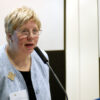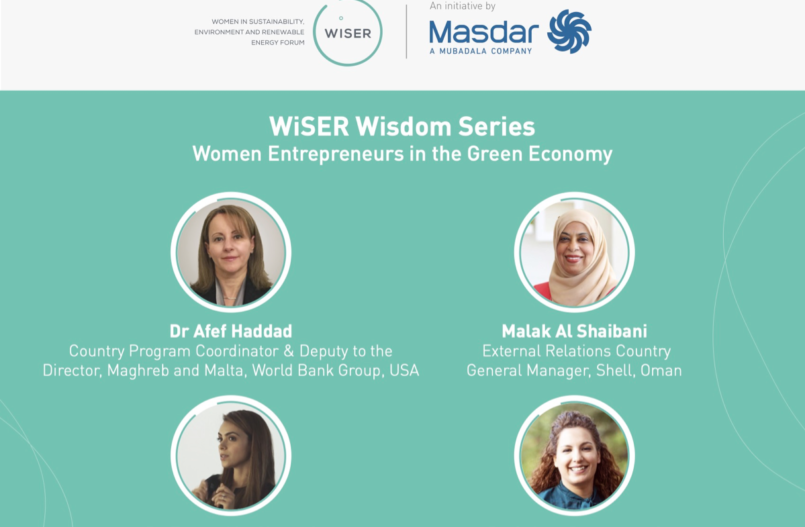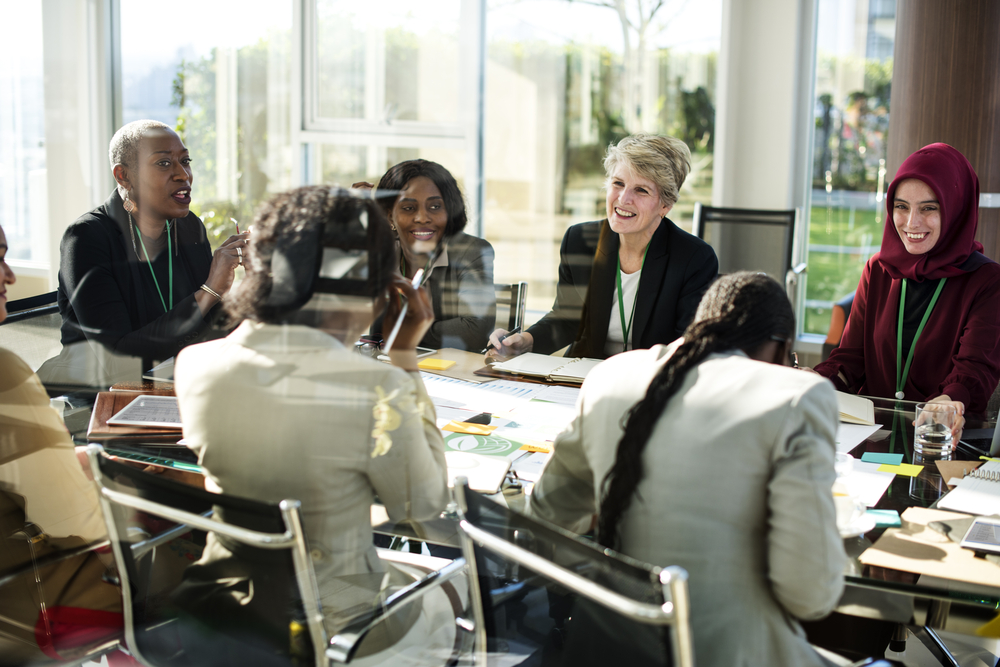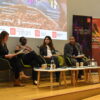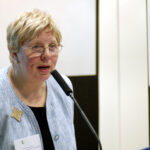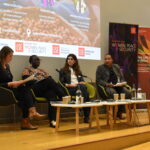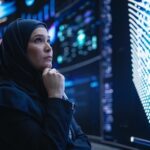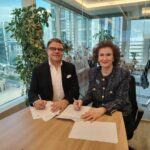A joint event as part of the WiSER Wisdom SeriesQ1 track on Sustainability and the Future of Work and the AIWF Impact Series2021in the Sustainability, STEM & Digital Economy track
Thanks to the invaluable efforts of the United Nations Environmental Programme, the call for a green economy tops the global policy agenda as a key strategy for sustainable development, commanding the attention of governments, the international business and global development communities[1]. At the “intersection between environment and economy”, to quote the Secretary General of the UN[2], a green economy “not only improves human well-being and lessens inequality but also reduces environmental risks and ecological scarcities” – an economy, therefore, that is “low-carbon, resource efficient and socially inclusive”[3].
The transition to green growth is a much-needed response to the many developmental and environmental crises that the world is experiencing – among them: climate change, economic instability, deep-rooted social and economic inequalities, and the refugee crisis. As the world looks towards a ‘green recovery’ after the COVID-19 pandemic, and in line with huge global demand for more eco-friendly jobs to address salient development challenges around job creation and sustainability, there are significant investments in the pipeline that will create much-needed eco-friendly jobs in the green economy, especially in the areas of renewable energy and digital agriculture.
Research shows that over 65 million jobs could be available globally in low-carbon sectors by 2030. For the MENA region, where women are still vastly underrepresented in the workforce and where youth unemployment rates have been the highest in the world for over 25 years, ‘greening’ the economy would boost it by increasing labour demand, building vital foundations for long-term economic growth and prosperity in the MENA, and addressing some of the region’s most salient development challenges, including food security, water scarcity, and poverty.
The UAE is already well on track to becoming one of the world’s leading green economies, as well as a center for the export and re-export of green products and technologies. Morocco is creating a whole new generation of green entrepreneurs, getting young people in rural areas into agri-smart entrepreneurship and green social enterprises, with a target of creating 350,000 new farmers by 2030. In Tunisia, more than 200 micro “green” projects have given local communities a boost, benefiting some 17,000 people, and helped combat desertification by diversifying livelihoods through conservation efforts and land and water management. And in July 2020, Jordan launched a multi-million ambitious green growth plan as part of a broader national drive towards a green economy and sustainable development.
For the MENA region, where nearly 5 million jobs are at risk because of COVID-19 and where 300 million new jobs need to be created over the next 30 years, the transition to a green economy carries exciting potential to create millions of much-needed opportunities for Arab women and young people. Since 2011, according to the Strategy & / PwC Women in Work 2021 Report, “OECD countries have consistently made gains towards women’s economic empowerment – but considerable progress is still needed to achieve gender parity in the workplace”, especially as COVID-19 threatens to reverse the OECD’s progress on women’s empowerment and economic inclusion[4]. As the World Bank notes, “the response to the current pandemic will at the same time also be the response to the climate crisis.”[5]
Although the green economy is still a relatively small-scale job creator at present, there is enormous potential for growth if skills and gender gaps in STEM disciplines are addressed now, linking industry, education, technology and innovation to ensure that STEM graduates are fully equipped with the skills that low-carbon sectors need now and in the future. In a region where, according to UNESCO, 34-57% of STEM graduates in Arab countries are women (a figure much higher than that seen in universities across the US or Europe), opportunities for female professionals in a green MENA economy are currently unrealised, and the potential for women entrepreneurs unlimited.
Session Objectives
This session will examine two key areas of the central theme of women entrepreneurship and the green economy: a) the emerging landscape for women-led entrepreneurship, social enterprise, innovation and advocacy in the MENA green economy; and b) the need to design tailored and targeted initiatives that support growth in women-led green companies in the region that are ready to scale up and create jobs in the drive for post-pandemic economic recovery. In both starting up and scaling up, there is renewed urgency for the region to prioritise STEM education for women and girls; as the FT recently noted: “A country’s capacity to produce ‘scale ups’, as opposed to start-ups, is often a product of the education system”[6].
This joint webinar event follows the signing of a Memorandum of Understanding between the Arab International Women’s Forum and WiSER earlier in March, launching a key institutional partnership which aims to promote and foster new opportunities for women in the MENA Region in sustainability and STEM. This event also welcomes the participation of two of AIWF’s Global Partners, PwC Middle East and Shell, to offer their valuable expertise on two key priority areas which lie at the heart of AIWF’s Vision for 2021 and beyond: women-led innovation in STEM and sustainability; and women’s entrepreneurship to power up economic growth.
Confirmed Speakers
Natalie Jones, Middle East Employment Law Leader, PwC Middle East, UAE
(Panel Speaker & Moderator)
Dr Afef Haddad, Country Program Coordinator and Deputy to the Director for the Maghreb and Malta; Leader of the ‘EmpowerHer Maghreb’ initiative, The World Bank, USA
Malak Al Shaibani, External Relations Manager, Shell, Oman
Dr Enass Abo Hamed, Co-Founder and CEO, H2GO Power Ltd, UK
Dr Salma Bougarrani, Co-Founder & CEO, Green Watech, Morocco
[1]José Antonio Ocampo, The Transition to a Green Economy: Benefits, Challenges and Risks from a Sustainable Development Perspective, Report prepared for the UNEP
[2]José Antonio Ocampo, The Transition to a Green Economy: Benefits, Challenges and Risks from a Sustainable Development Perspective, Report prepared for the UNEP
[3]José Antonio Ocampo, The Transition to a Green Economy: Benefits, Challenges and Risks from a Sustainable Development Perspective, Report prepared for the UNEP
[4]Strategy& / PwC, Women in Work 2021: The impact of COVID-19 on women in work, March 2021, p 2-3
[5]https://blogs.worldbank.org/arabvoices/going-green-after-covid-19-will-help-mena-economies-recover-better
[6]Jonathan Moules, How ‘scale-up’ business became the engine of job creation, Financial Times, 11 February 2021



